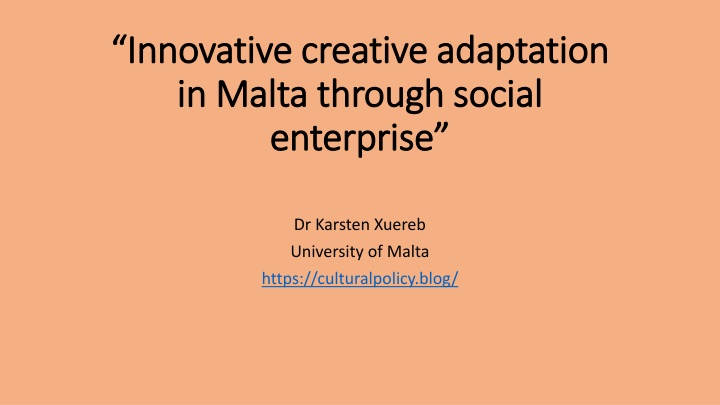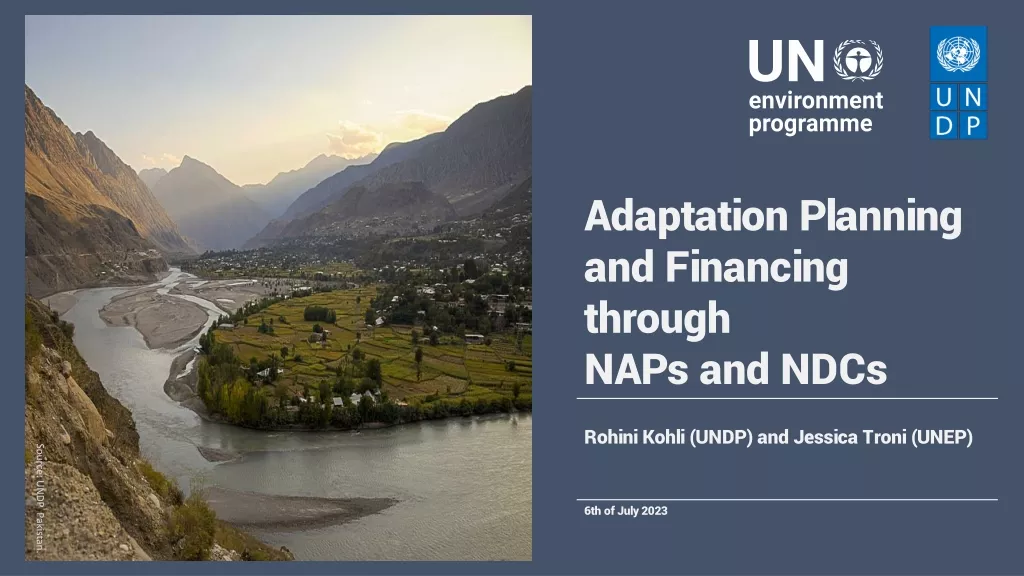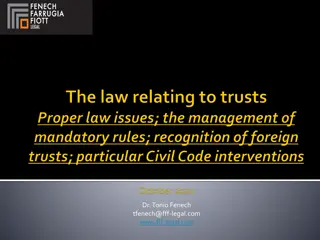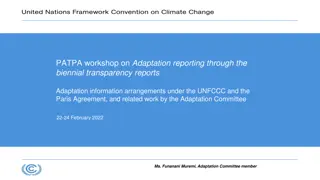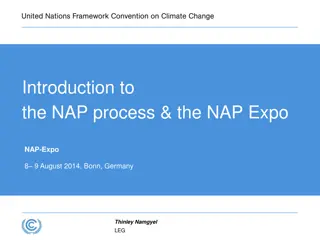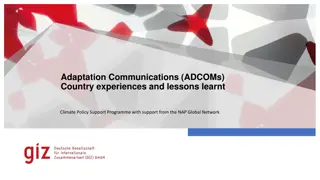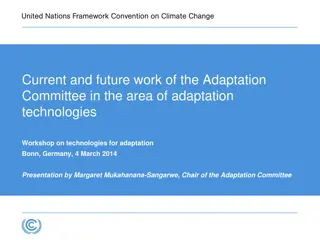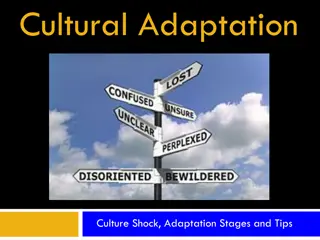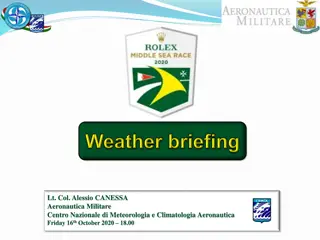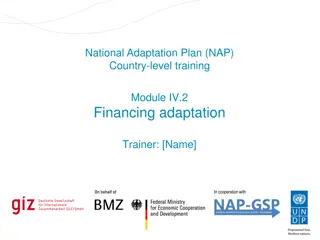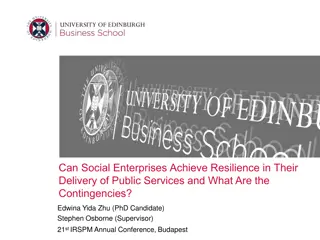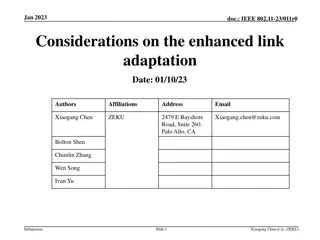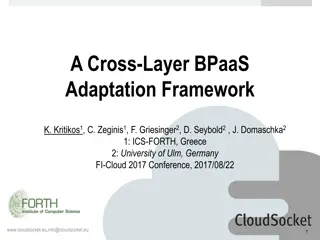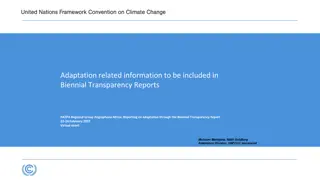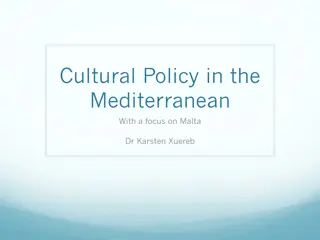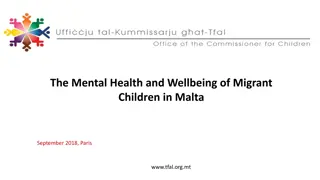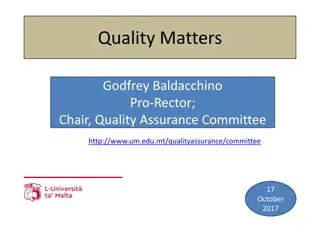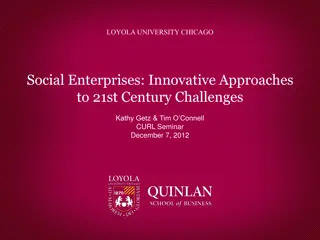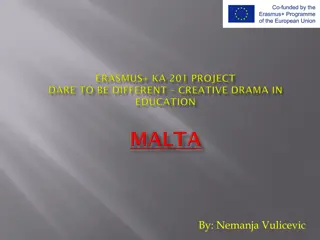Innovative Adaptation in Malta through Social Enterprise
"Explore Dr. Karsten Xuereb's work on innovative and creative adaptation in Malta through social enterprise. Learn more about this unique approach at the University of Malta and how it contributes to cultural policy development."
Download Presentation

Please find below an Image/Link to download the presentation.
The content on the website is provided AS IS for your information and personal use only. It may not be sold, licensed, or shared on other websites without obtaining consent from the author.If you encounter any issues during the download, it is possible that the publisher has removed the file from their server.
You are allowed to download the files provided on this website for personal or commercial use, subject to the condition that they are used lawfully. All files are the property of their respective owners.
The content on the website is provided AS IS for your information and personal use only. It may not be sold, licensed, or shared on other websites without obtaining consent from the author.
E N D
Presentation Transcript
Innovative creative adaptation Innovative creative adaptation in Malta through social in Malta through social enterprise enterprise Dr Karsten Xuereb University of Malta https://culturalpolicy.blog/
Introduction At the beginning of the current millennium, the notion of social enterprise was not highly featured in European debate. However, to clarify, social entrepreneurship may be considered as the process through which social entrepreneurs create social enterprises (Hulg rd et al., 2014). The drive towards approaching traditional knowledge and aspects of intangible heritage in ways that open up their interpretation in innovative ways is of particular interest to the cultural sector, including cultural tourism, in Malta and Gozo.
Background & definition The traditional role of religious organisations, particularly those related to the Catholic Church, have over time been supplemented, further supported, and at times even replaced by not-for-profit, civil society and voluntary sector practice that are secular in inspiration and perspective. A social enterprise is defined as: an operator in the social economy the main objective of which is to have a social impact rather than make a profit for their owners or shareholders. It operates by providing goods and services for the market in an entrepreneurial and innovative fashion and uses its profits primarily to achieve social objectives (European Commission, 2021).
Cultural enterprise in Malta Cultural enterprise in Malta & Gozo & Gozo Malta & Gozo: a micro lab for research into sustainable cultural tourism How the European and local levels are already closely linked but well able to tighten relations between them local authorities & micro set ups with a big role to play Council of Europe: The Phoenicians Route & Smart Ways UNESCO: World Heritage Nomation Sites & archaeological, research and cultural tourism micro set ups EU/ECOC: Birgu & Gozo vying for title in 2031
Cultural drive A key goal for the nurturing of a forward-looking cultural ecosystem that cherishes the local as well as the international is provided by preparations for European connections. All players need to be considered together by a strategy aiming to support and guide the development of the sector. Therefore, the ministry, the regional council, the local councils and the culturally active communities, be they artists, other creatives, schools, parishes, clubs and community centres, need to be addressed, involved and encouraged to keep working together.
Framework in EU dimension Actively promoting social engagement One of the key priority actions recommended by the European Commission with regard to Malta for 2019 and future years has been the strengthening of the policy framework to speed up the transition towards the circular economy and make incentives for SME resource efficiency more effective.
Thank you. https://culturalpolicy.blog/
